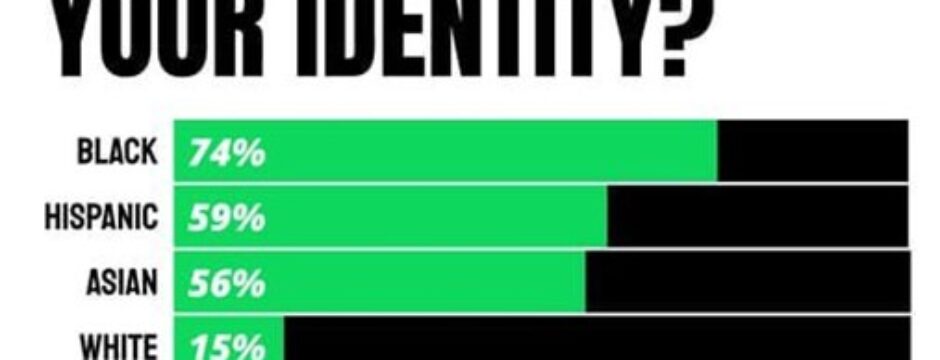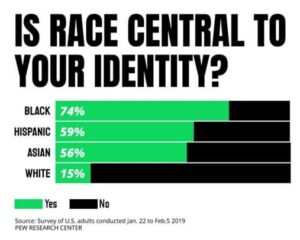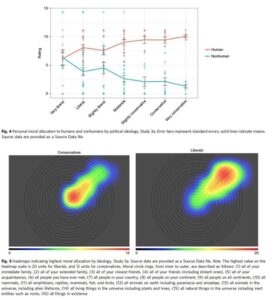
If you spend any time at all in conservative political circles, you will encounter a handful of endlessly recycled political myths spawned by the first generation of postwar liberal neoconservatives. These myths were subsequently turbocharged by neocon’s political heirs- many platformed as talking heads by Fox News. The myth we will focus our attention on today involves the belief that America was a nation founded upon the liberal ideals of individual freedom and autonomy.
We are a people that don’t know our own history, and unsurprisingly, there is a severe discontinuity between the historical past and the present. Professor Paul Gottfried noted that1 “…the conservative movement’s appeal to values has prevented it from having to look more deeply at its own problems, most particularly its lack of connection to an older and more genuine conservatism…” He continues “…the postwar conservative movement has no real link to its beginnings. To be more accurate, the present media think tank movement does not preserve or replicate the constructivist character of its postwar source. It is an artificial movement whose unity and support derive partly from manufacturing values.” In other words, modern conservatives are simply making things up as they go. Professor Barry Shain put it more bluntly in his work The Myth of American Individualism that2 “…we are a people without a past.”
What kind of people founded America? Were they rugged individuals like we have been taught to believe? What do you find when you dive into 18th-century first-person accounts and primary-source documents? Dr. Shain writes that “…most 18th-century Americans cannot be accurately characterized as predominantly individualistic or, for that matter, classically republican. The vast majority of Americans lived voluntarily in morally demanding agricultural communities shaped by reformed-Protestant social and moral norms. These communities were defined by overlapping circles of family- and community assisted self-regulation and even self-denial, rather than by individual autonomy or self-defining political activity.” That, dear reader, is the America that gave us the Declaration of Independence and the US Constitution, and our social fabric remained static in large sections of the country until recently. Where does this absurd myth of individualism come from? There are minor historical influences to be certain, but the biggest driver of modern individualism has come from a deliberate social conditioning program that began in the West after World War II called the postwar consensus.
In the wake of the bloody carnage of WWII, social scientists began to study ways that future conflicts might be prevented. Instead of focusing in on the authoritarian ideology that spawned these regimes, these scientists proposed that if the social fabric of Western society was properly deconstructed, any “prefascist tendencies” could be abated and by eliminating fascists beforehand, it was possible to eliminate the potential for war. You are thinking this sounds like Minority Report and the Department of Precrime… and you would be right. Front and center to this effort was the Frankfurt School- a Marxist group of social scientists whose research and collaboration resulted in a work called The Authoritarian Personality. This work3 “suggested things like parental authority, traditional gender roles, family pride, preserving heterosexuality, defending American culture, and Christian beliefs signaled implicit prefascist tendencies.” Yes, you are reading this correctly. In order to prevent authoritarianism in the future, a group of godless Marxist social scientists sold American authorities on the idea that Westerners had to be stripped of any meaningful identity, culture, and sense of belonging to secure a lasting world peace.
Karl Popper’s two volume work The Open Society and Its Enemies was published around this same time. It became a reference text for Western institutions as a litany of governmental and university committees convened in the aftermath of the war in a collaborative effort to retool public education. It was decided that change would come, not through force, but through critique. R.R. Reno writes4 “the postwar consensus embraced ‘critical thinking’ as an indispensable cultural therapy necessary to prevent the development of authoritarian personality and forestall the return of totalitarianism. Reno continues: “At nearly every juncture during the 1950’s, the dominant liberal establishment interpreted personal and social problems as flowing from one or another pathology of the “closed society”- overly repressive norms, a middle class culture that disapproved of the unconventional, and an uncritical acceptance of social mores, to say nothing of racism, sexism, and anti-semitism.” Lastly, “To understand the last 70 years, we need to grasp their paradoxical character. The cultural consensus of the postwar era consolidated around an ambivalence about culture that, over time, resulted in an anti-cultural outlook.” Reno details how the plan for the Open Society evolved and was implemented through Western institutions. The end result of a nation and culture relentlessly deconstructed by critique is a borderless rabble of deracinated individuals- an anti-cultural culture in anti-national nation.
What was initially billed as a utopian program to ensure a perpetual liberal democratic order transitioned into a rapidly progressing Western civil religion of wokeness. The postwar consensus eventually became a despotic tool of control used by the political establishment to wield against its political enemies. This anti-culture/anti-national ideology has multiplied social and psychological pathologies as it set up a social order that functions contrary to nature and to nature’s God. Tribes, tongues, and nations are aspects of the created order specifically given to keep peace and ensure harmony and social function- they aren’t incubators of fascism, like our Marxist friends would have us believe. With these political restraints gone, our Open Society experiment has spawned record amounts of crime, severe depression, isolation, loneliness, despair, and anger. A latent anarcho-tyranny surrounds us daily. It is ironic that our anti-authoritarian regime has become the very thing it was built to prevent.
How does this play out politically? There is a reason the people are powerless against the political establishment. Politics implies a polis. The vast majority of political players within the GOP have been successfully programmed to view themselves as individuals and are happy to play their role in Popper’s Open Society; their identity and sense of cultural belonging have been replaced with an ideology that is fully compliant with the ruling regime. The only threat they pose is to those few individuals that attempt to challenge the status quo from the outside. As such, they are the conservatives that never conserve anything. Until sufficient numbers of people are unplugged from this corrosive matrix and begin to work together, socially, culturally, and politically, our captured institutions and broken political processes will continue to produce the same results.
-Ryan McCubbin
1Paul Gottfried, Conservatism in America, Making Sense of the American Right (Palgrave Macmillan, 2007) x-xi.
2Barry Shain, The Myth of American Individualism (Princeton University Press, 1994), xvii.
3Jon Harris, Christianity and Social Justice: Religions in Conflict (Reformation Zion Publishing, LLC, 2021), 12.
4R.R. Reno, Return of the Strong Gods (Regnery Publishing 2019), 40-48.


